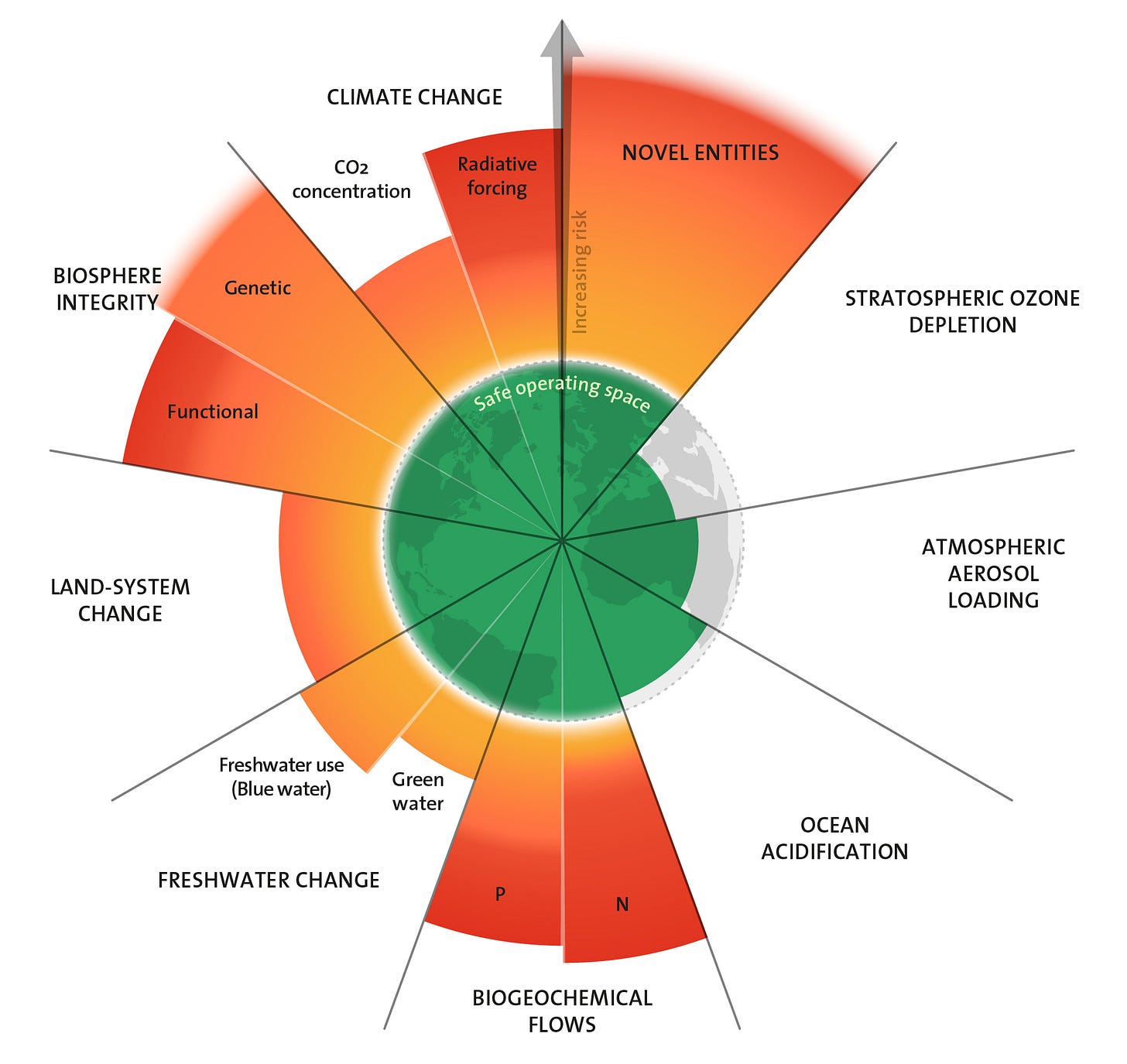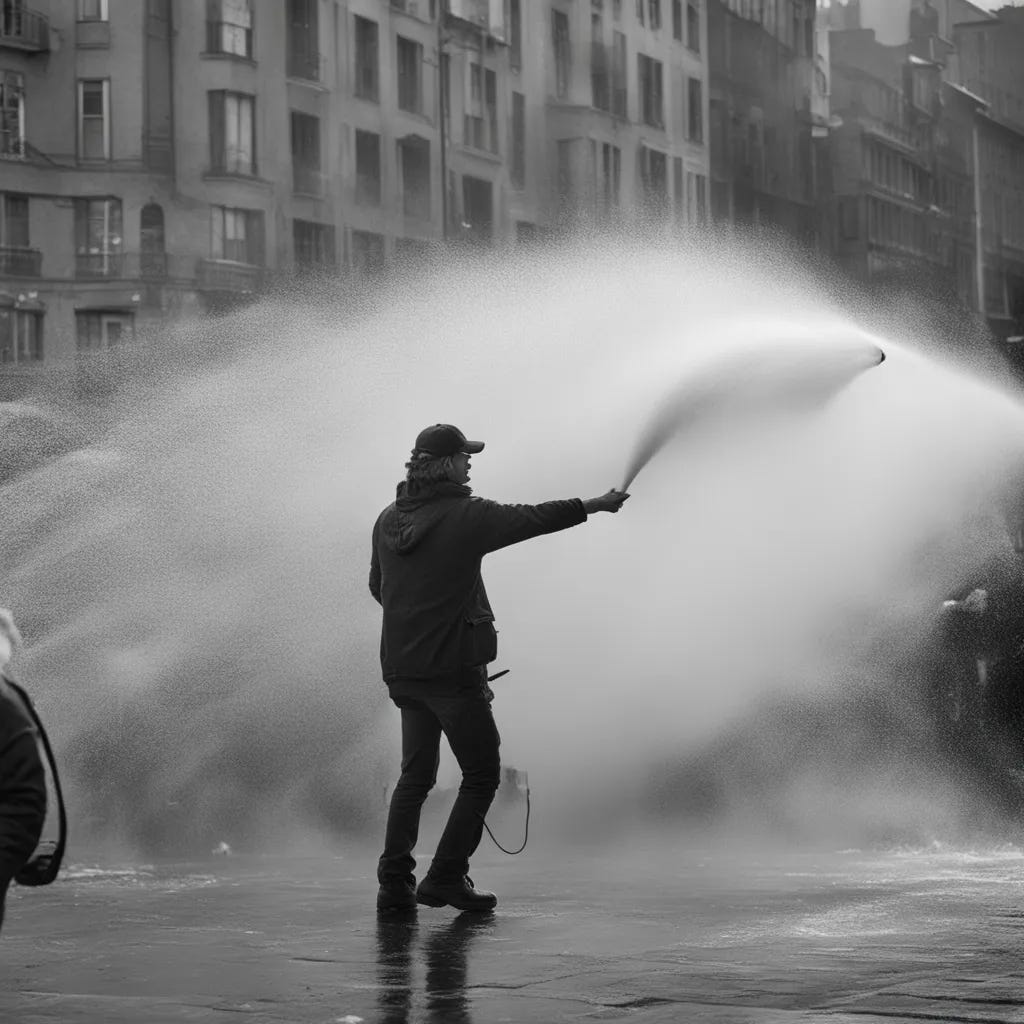#111 Six out of nine
The news says this is the last summery weekend of 2023. In our little garden, exhausted bumblebees are snacking on flowers that have been in bloom since March. Their skin is grey. This is their last supper. It’s been a rough season for them, and next year’s will be tougher.
For the past week, Extinction Rebellion has been daily blocking one of the highways in the Netherlands, the A12, which provides access to our constitutional capital. Thousands have been arrested in a protest against the 37.5 billion euros in benefits that our government annually awards to fossil companies. On Tuesday, climate change furthered their cause by blocking another highway, the A2, with torrential rains and flooding. It's uncertain how much water was arrested.
That said, it might be in poor taste to make jokes about water when flash floods have killed thousands in Debra, Libya, this week.
Some media outlets, albeit halfheartedly, attempted to shift the blame for Libya away from climate change (and thus industrial countries), arguing that the dams that burst hadn't been adequately maintained in the war-torn country. The war in Libya, after all, is the result of the country’s own actions and solely their responsibility (a decision we made in 2011 to protect oil interests in the country), so we can absolve ourselves of responsibility. Blah blah. The floods are an example of climate change, and we bear the blame.
Moreover, it's not as if stable democracies always maintain their dams properly.
This week, the renowned Stockholm Resilience Centre published research findings indicating that we have exceeded six out of nine planetary boundaries, placing us "well outside the safe operating space for humanity."

What surprises me the most is the fact that we haven't crossed three of these boundaries. Ozone depletion, a problem we addressed a generation ago, is now within safe limits, serving as a reminder that if we commit to it, we can rectify all these boundaries. "Atmospheric aerosol loading" is a complex term for air pollution. Lastly, ocean acidification is also still within acceptable boundaries. Fortunately, I’d add, as historical changes in ocean acidification have wreaked havoc on global ecosystems, and it's always the dominant species that suffer the most.
We know what needs to be done, and 37.5 billion euros would be more than just a drop in the bucket.
A photographer I'm connected to, thanks to our participation in the same workshop a decade ago, posted an image that speaks volumes. It's a picture taken at the A12 XR protests. I tried to obtain a license for it but couldn't, so I had an AI replicate it. You can view the (undoubtedly superior) original here.
In this black and white photograph, an activist faces a powerful deluge of water from a water cannon, yet they remain resolute. There are at least four narratives within the image, in addition to the one it initially portrays. Thank you, Daphne, for sharing it.
The sun is setting on our little garden. A fat spider has made its web in an opportunistic location. Undisturbed, the bumblebees snack on. There are even butterflies, the white kind we call cabbage whites. A waft of sweet perfume blows. It will be a few months before I sit here again, likely. I wonder what the world looks like then,
Have a good weekend, whether you’re protesting or just worried,
— Jasper

